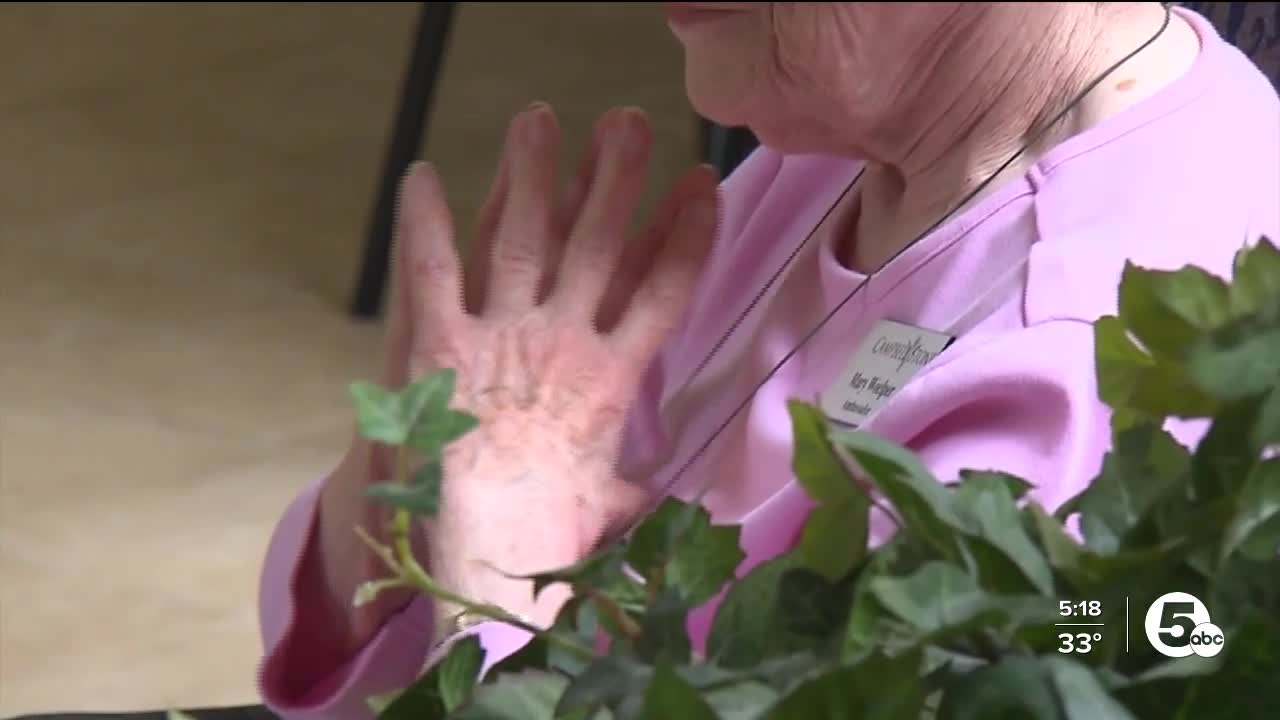OBERLIN, Ohio — According to Kendal at Oberlin, a senior living facility in Lorain County, someone in the world develops dementia every three seconds and diagnoses continue to increase. The Alzheimer’s Association reports a 17%increase of dementia during the pandemic.
“We are not immune to that unfortunately. That’s a huge percentage,” said Michele Tarsitano-Amato, director of Creative Arts Therapy and Dementia Specialist at Kendal at Oberlin.
The Cleveland Clinic estimates 50% of people 85 and up have dementia and the reality hit home for three friends and residents at Kendal at Oberlin. The disease impacts the way a person thinks, their memory, personality and behavior making it sometimes difficult to navigate the new normal.
“It just started being an issue or concern for residents,” said Carol Bojanowski. “We had evaluations as residents to tell us about it… [there was] a concern about talking with people who are having cognitive changes…[staff] didn’t know what to do.”
So, this trio, including Bojanowski, Elizabeth Holle and Janet Newman, came up with a solution by their own program called “Stop, Look and Listen.” The program’s goal is to teach residents, caregivers, and staff better ways to assist someone with dementia. As a result, some caregivers struggle with how to best communicate and navigate the new normal.
“What’s really powerful is the sharing staff talking about the challenges they have and how hard it is for nursing staff to watch somebody change…and for residents to talk about their fears, am I going to be locked up? Am I going to be put away and never see people again,” Holle explained.
Through trainings and discussions, participants and staff are taught to stop and slow down when speaking to a person with dementia to help them better process information. The program also teaches them be aware, present and supportive in the moment, while practicing patience.
“It’s a dynamic program that’s always being revised and upgraded and improved,” said Bojanowski.


